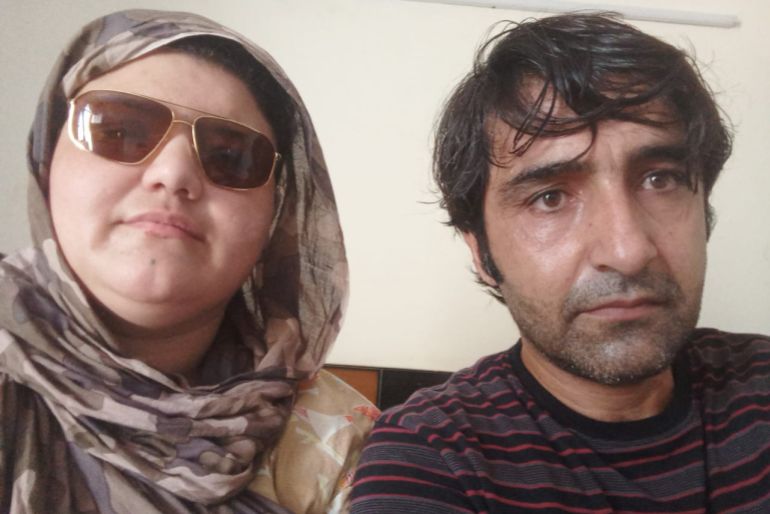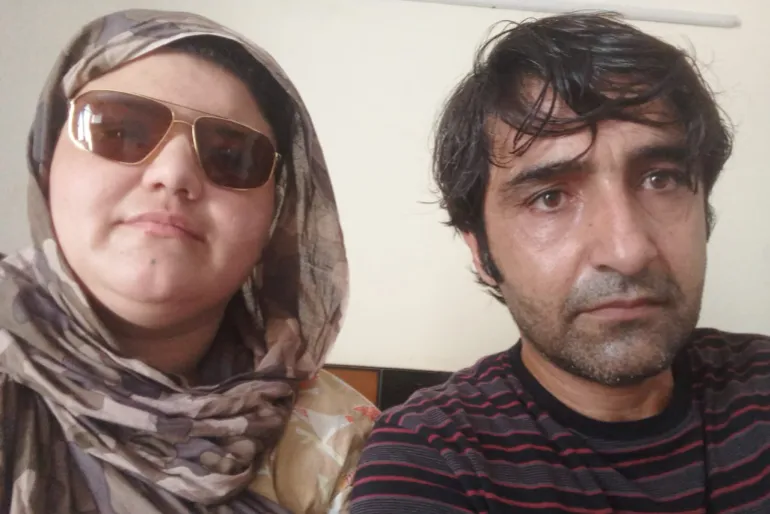Millions of Afghans have fled persecution and poverty since the Taliban’s takeover in August 2021, and many are stuck in limbo in countries around the world with few rights and freedoms and with no hope for a better future.
Nearly 3.6 million Afghans left the country from 2021 to 2022 amid a humanitarian crisis, the majority of them escaping to neighbouring countries, according to data shared by the International Organization for Migration.
It is estimated that since 2021, nearly 100,000 Afghans have been resettled in the United States and Canada while another 380,000 Afghans have found their way to European countries, but many of them are still waiting for permanent residency and a path to citizenship.
Here are some of their stories:
Khatera Hashmi, India:
Policewoman Khatera Hashmi was moved to India for treatment after she was allegedly shot, stabbed and blinded by Taliban fighters in 2020.
The 34-year-old is now living in New Delhi in a one-room apartment and is still recovering from her injuries. The United Nations refugee agency pays her a monthly honorarium, but that’s not enough to support her two-year-old daughter and husband, Mohammad Nabi Hashmi, now that the Taliban is in power and the Afghan government stopped paying her wages.
“I used to get a salary even while I was recovering that helped us. There were also Afghan colleagues and friends from civil society who were providing us support. But then the Taliban took over and everything stopped,” she said.

Hashmi applied for asylum in the US soon after the fall of the Afghan government. She has also had multiple interviews for resettlement with the International Organization for Migration, but she has not heard from them since.
“It has been two years, but they won’t even tell us how long it will be before we are given a result or are relocated,” she said.
Hashmi resorted to protesting in April at the office of the United Nations High Commission for Refugees to demand a swift response to her case.
“I spent four nights outside the UNHCR office in New Delhi. Their guards removed me forcefully, but what are we supposed to do? We have been waiting in uncertainty about our future,” she said.
“All we are asking for is a way to survive this situation with dignity and for a better future for our children than the one we had.”
Hashmi says she was attacked by the Taliban for joining the Afghan police forces.
“I had witnessed how hard it was for women in Afghanistan to seek justice. Even going to the police to get help is such a challenge for women,” she told Al Jazeera.
With the support of her husband, the former tailor from the southern province of Ghazni enrolled for police training during the COVID-19 pandemic in 2020.
Hashmi said that less than three months into service in June 2020, she and her husband started receiving threats from the Taliban.
When the threats intensified, she was offered a transfer to Kabul. But before she could move, two men attacked her.
“They shot at me several times and also stabbed me in the face with a sharp object. They left me to die,” she recalled.
“The Taliban punished me for the crime of being a woman.”
Read full story on Al Jazeera
